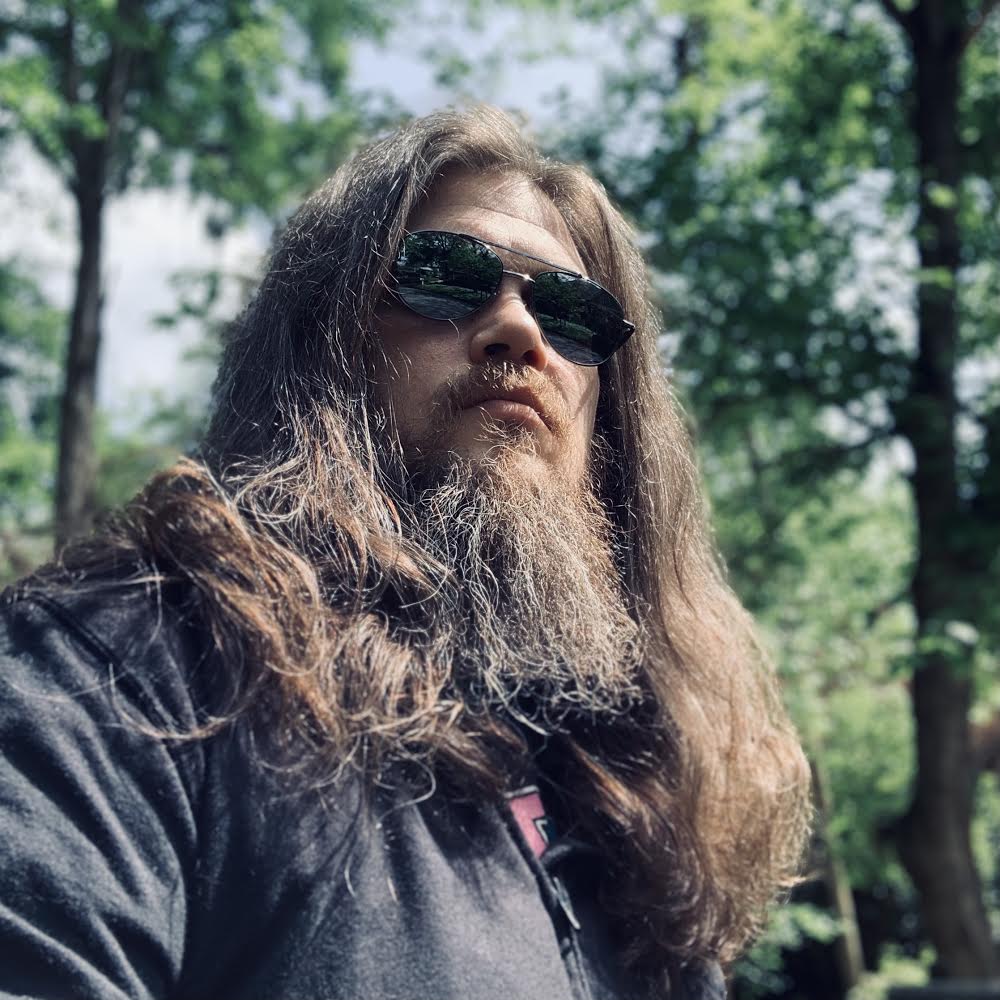Marvel's new U.S. Agent explores the difference between John Walker and Dave Chappelle
Christopher Priest discusses his upcoming U.S. Agent limited series and yes, election day
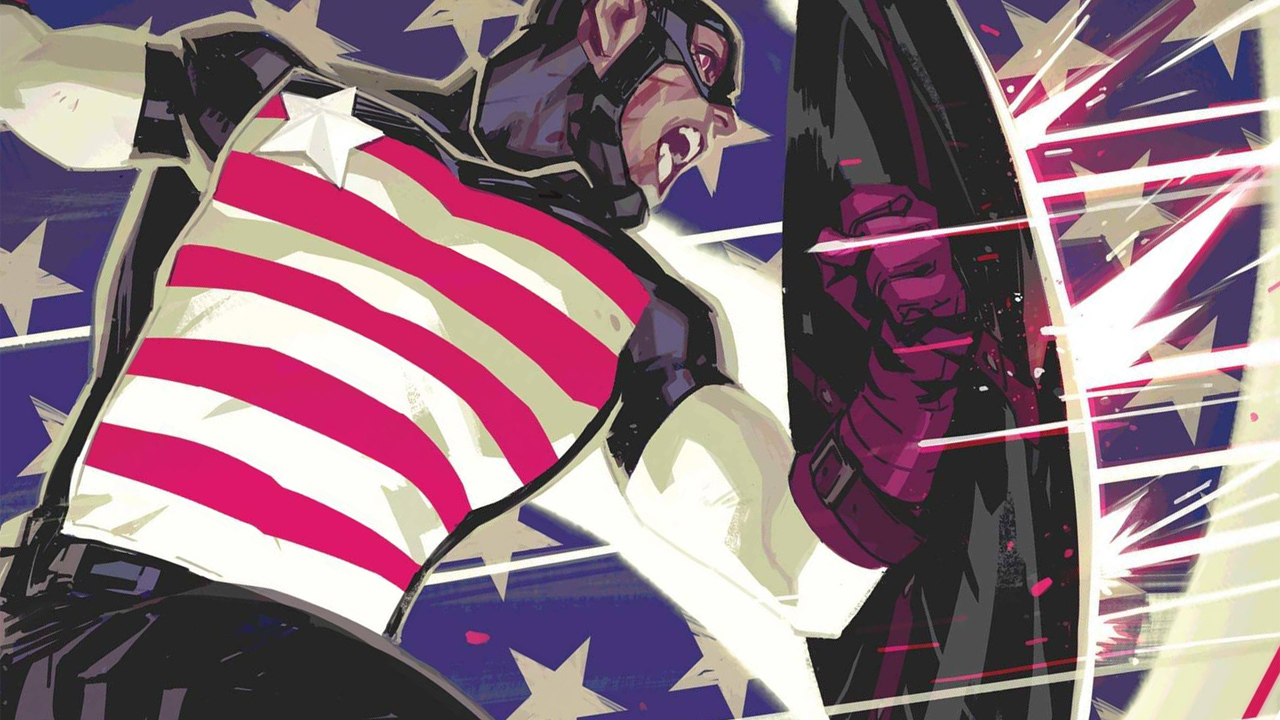
Writer Christopher Priest has made his name as a bold visionary who refuses to pull punches while digging into and revitalizing classic characters, as he's done for Black Panther, Deathstroke, Vampirella, and many others.
Now, Priest is returning to Marvel to bring his outspoken humor and social insight to a character with a similar reputation for telling it exactly as he sees it: U.S. Agent.

Teaming up with artist Georges Jeanty, Priest will revamp John Walker's place in the Marvel Universe by first making him a government contractor, then replacing him as U.S. Agent - all while he's undertaking an adventure of his own in a five-issue limited series.
Newsarama spoke with Priest ahead of U.S. Agent #1's November 4 release to talk about how he came on board with John Walker's adventures, how Walker's current predicament reflects something many Americans have experienced, and what's behind the story title 'American Zealot.'
Newsarama: Christopher, you've had iconic runs on your fair share of Marvel characters at this point. What put U.S. Agent on your radar, and what hooked you on writing this relatively unique character in the Marvel Universe?
Christopher Priest: Tom Brevoort asked. I'm a pretty easy date.
Similar to a lot of actors, I'm always curious about new voices. John Walker has resonances with both Deathstroke (ego) and Deadpool (histrionics, mania). He sits nicely in those extremes.
Get the best comic news, insights, opinions, analysis and more!
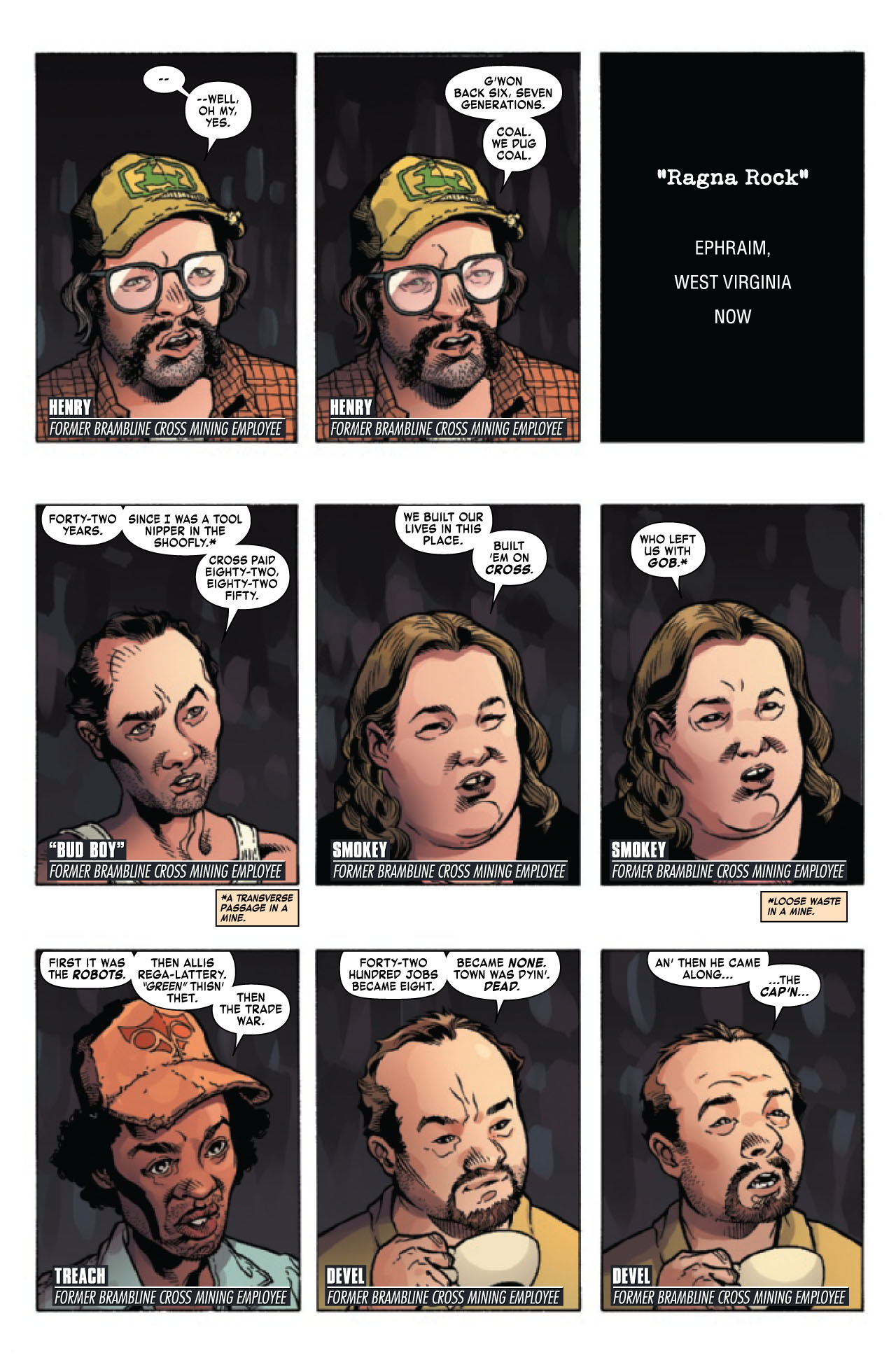
Nrama: What's your read on John Walker, both as a man and as a hero? What makes him tick?
Priest: Well, the basic key to John Walker is the fact he is not Steve Rogers. U.S. Agent dresses like Captain America but is, in fact, not Captain America. The whole point of the character is to help better define who Captain America is, or more pointedly, who or what Cap is not.
Walker is impatient, fast-tempered, judgmental, cynical; a deeply flawed mirror of the impeccable warrior Cap represents. Within those flaws lies his humanity, a kind of Bruce Willis willingness to inject himself into perilous situations simply because it is the right thing to do.
John Walker is a guy who tries hard. He's Joe Lunchbucket, All-American. He's worth rooting for.
Nrama: You're kicking things off by revoking John Walker's government clearance, and essentially turning U.S. Agent into a private military contractor. What does this mean to the guy who once replaced Steve Rogers as the official Captain America? Where does this put his mindset?
Priest: As a government contractor, John is paid a lot more money to do a lot less work. He is actually doing grunt work - force protection, monitoring, etc. - and making quite the buck doing it. So it's similar to what he'd been doing, but much less glamorous or exciting, like being fired from the police force only to become a private security guard at the police motor pool dispatch office. Real cops snicker at you as they punch out for the night.

Nrama: The idea of private contractors replacing dedicated employees is more and more common in general, especially in the comic book industry. Recognizing the wildly different stakes at hand, how does that real world shift inform the perspective you're bringing to U.S. Agent?
Priest: I actually got the idea when I realized an increasingly large percentage of so-called "government agents" are, in fact, contractors--temps with machine guns. Living in a military town in Colorado, I came to know many government contractors, although most of my friends rode desks at military installations and did things they couldn't chat about over supper.
It's possible the pay and benefits disparity is leading to an erosion of qualified career agents and soldiers as the private sector, with its eight weeks paid vacation and vastly higher pay scales for people with Top Secret or Code Word clearance (shout out to Tom King) becomes a strong draw. As I see him, Walker would much rather remain 'official,' even if he's still doing a watered-down version of his job.
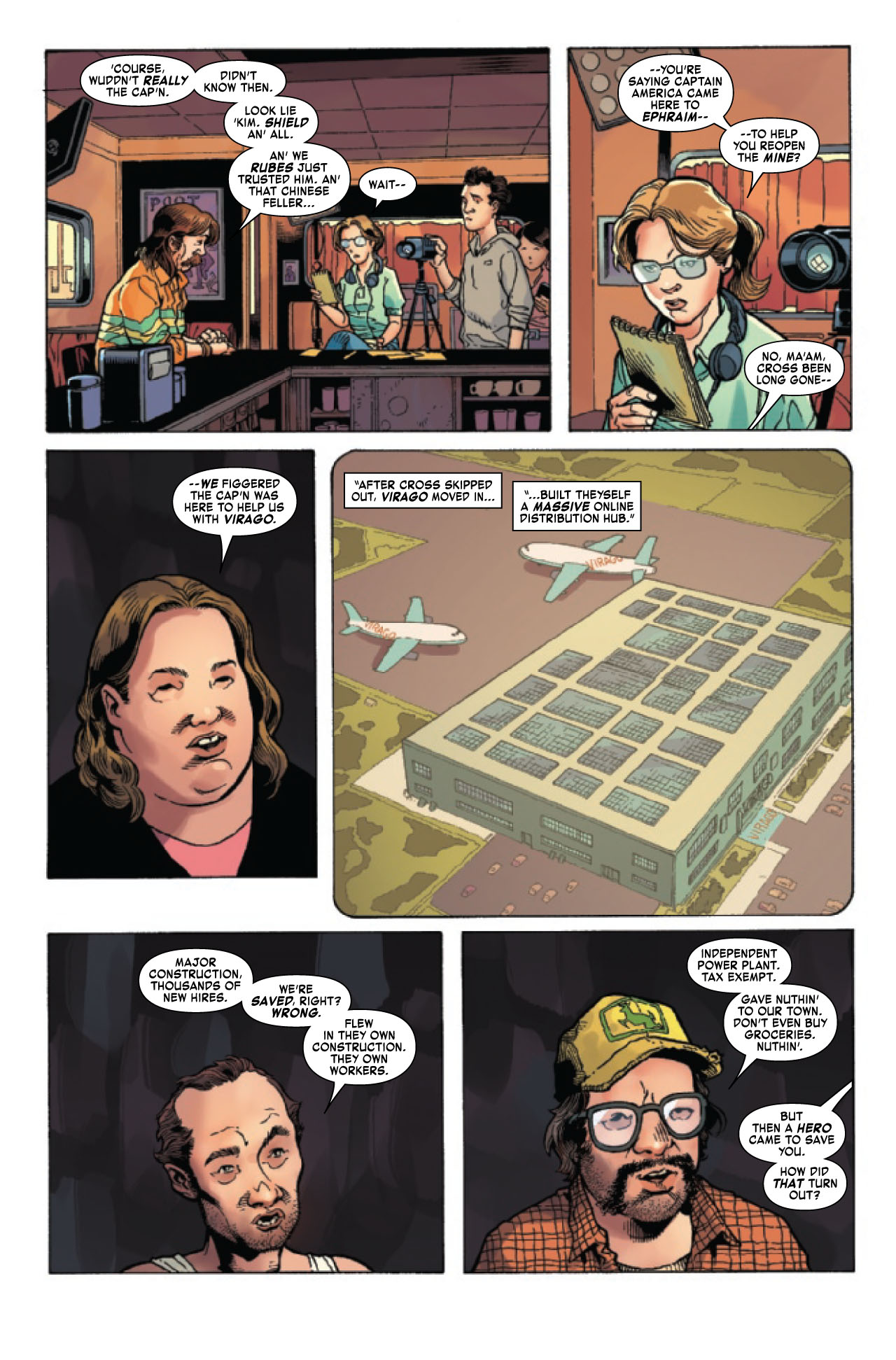
I only have five issues, which is frustrating because the character really did need a makeover, and all of this new infrastructure had to be put in place and backstories reestablished. I thought, in order to define what John's actual job is, it might be best to take the job away and give it to someone else. Then our narrative can be about the job and why it has value to both John Walker and America.
Nrama: On that note, John Walker has never been one to keep mum about his opinions, political and otherwise. How does a character like that, who has often been controversial, fit into the 2020 superhero landscape?
Priest: Not very well.
I wonder what the difference is between, say, John Walker and Dave Chappelle.
People pay a lot of money to go sit in a theater and watch Dave smoke, which no characters can do in comics anymore because somebody somewhere actually thinks comic books are read exclusively by children. There's a lot of decisions being made for the industry by people who are not in the industry but who have influence on or control over the industry.
It's a lot like my Aunt Ruby lecturing me on how to replace the ABS module on my car.
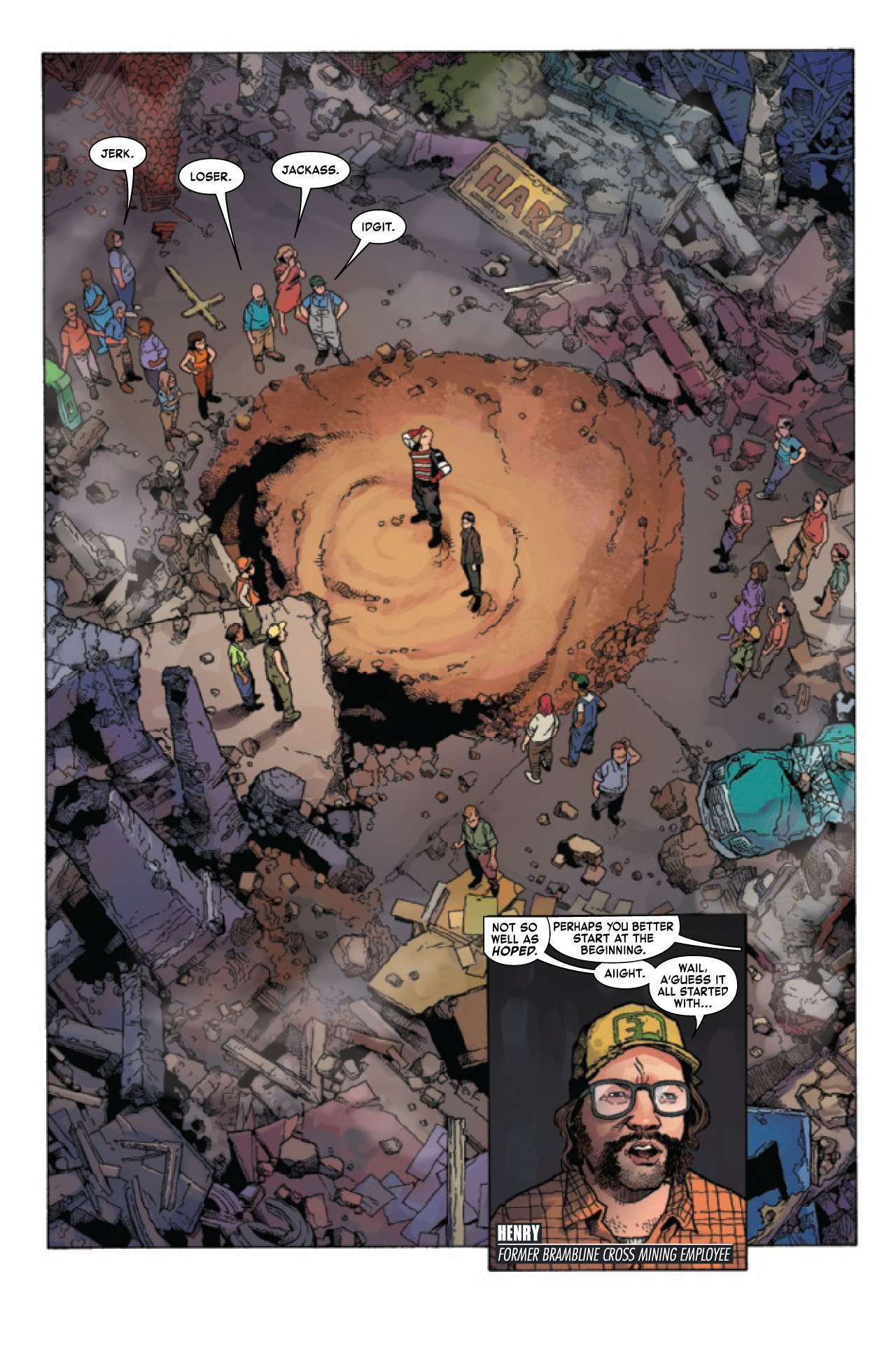
Dave Chapelle is going to be Dave Chapelle. He is going to offend somebody. But, ironically, the people in his audience seem to accept that; that's the social contract when you go to see Dave. If you're thin-skinned, if you take a comedian seriously, you really should find other entertainment for the evening.
The comic says 'U.S. Agent,' not 'Christopher Priest,' so I'm at a disadvantage. If people were buying a comic marked 'Christopher Priest,' well, therein would be a similar social contract: Priest has a cynical sense of humor and likes tipping over sacred cows. He gets to do a lot of that over at Dynamite because those books are labeled and marketed to an adult audience.
I'd love to write an 'adult swim' U.S. Agent, a book where John can be more fully be John. But even the stuff writers did in the '80s and '90s simply won't fly anymore.
Nrama: You're working with Georges Jeanty on U.S. Agent, a veteran creator in his own right. What's it like developing a working relationship with him for this story? What's he bring to the table?
Priest: This is the fourth time I've lobbied to get Georges on a project. I met him for the first time somewhere out on the conventional trail and was just floored by his artistry. Georges has a facility with character many artists today dismiss. His people are alive, they're breathing, the locations are real.
This series is set in rural America and I needed someone who wouldn't give me butter sticks for buildings and generic white people in baseball caps. George has created this town and breathed life into these funny, loveable, rural God-fearing Americans who, much to their inevitable dismay, mistake U.S. Agent for Captain America.
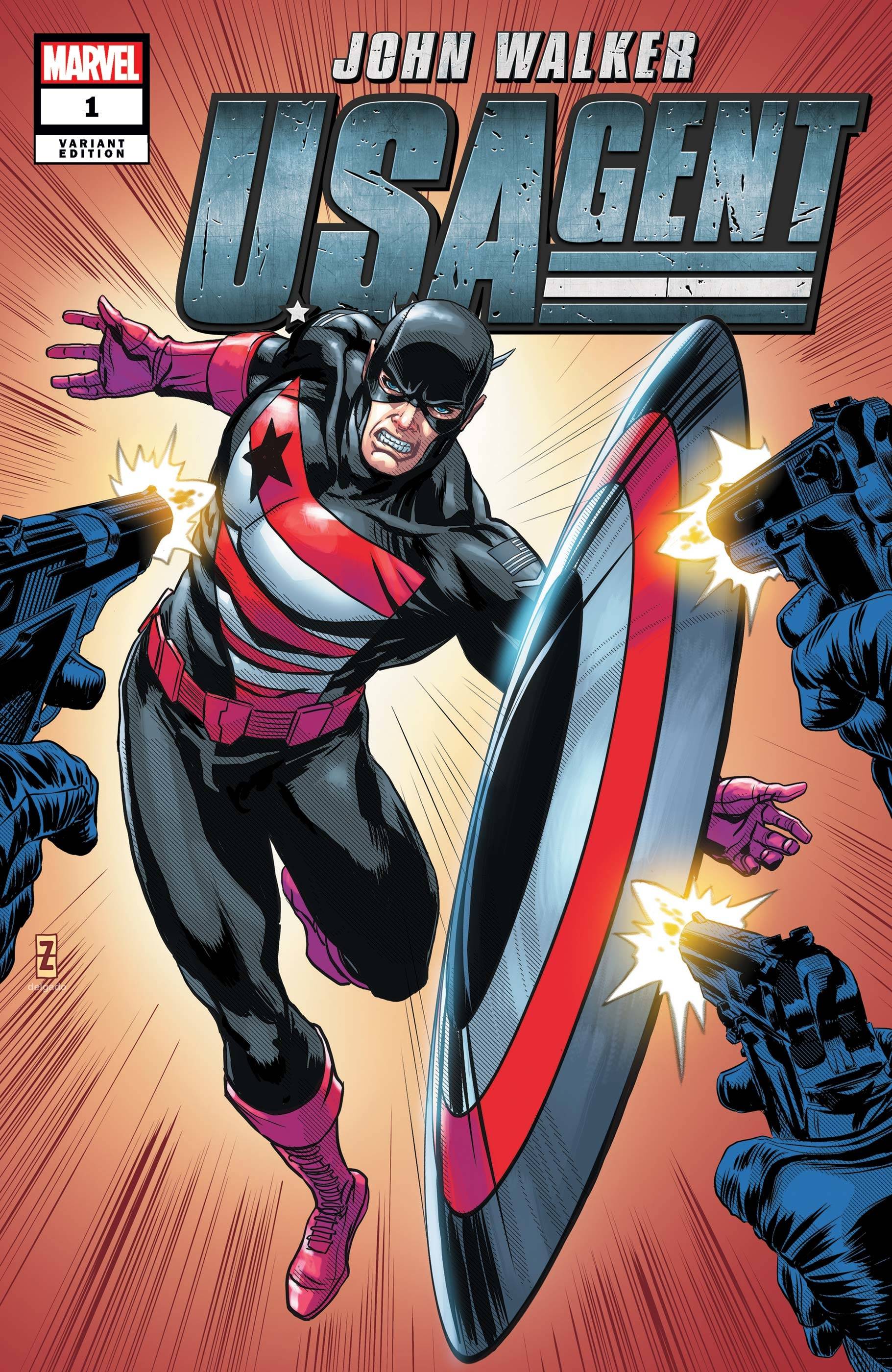
The story really called for a special touch, and I was excited to hear Georges was available. He did, however, keep me hanging for a few days while he thought it over...
Nrama: This five-part U.S. Agent story is titled 'American Zealot.' What is that title all about?
Priest: It's about all the noise. As we sit, in late October, people around the country are once again hoarding toilet paper. They have also bought up all of the ammunition in gun stores. It is a fairly unprecedented event to have the majority of American people look forward to Election Day with anxiety over possible civil unrest, anxiety all but, in my opinion, completely fabricated by capricious and pernicious use of social media in the service of some political end.
Once upon a time we'd have elections. Somebody would win, the rest of us would take a seat for four years, and that was that. Roads still got built, schools still got funded, government functioned. It is a darkly sinister time now where conflicting views of patriotism are defended by offensive language and the threat of violence.
We are all American zealots. There are many competing visions of America, with each constituency working overtime to impose its vision on the whole. But, instead of our ideas competing in the forum of American opinion, we are openly hostile to one another. This misses the point of the value proposition of America: a quilt of voices, faces, cultures, values, and ideas.
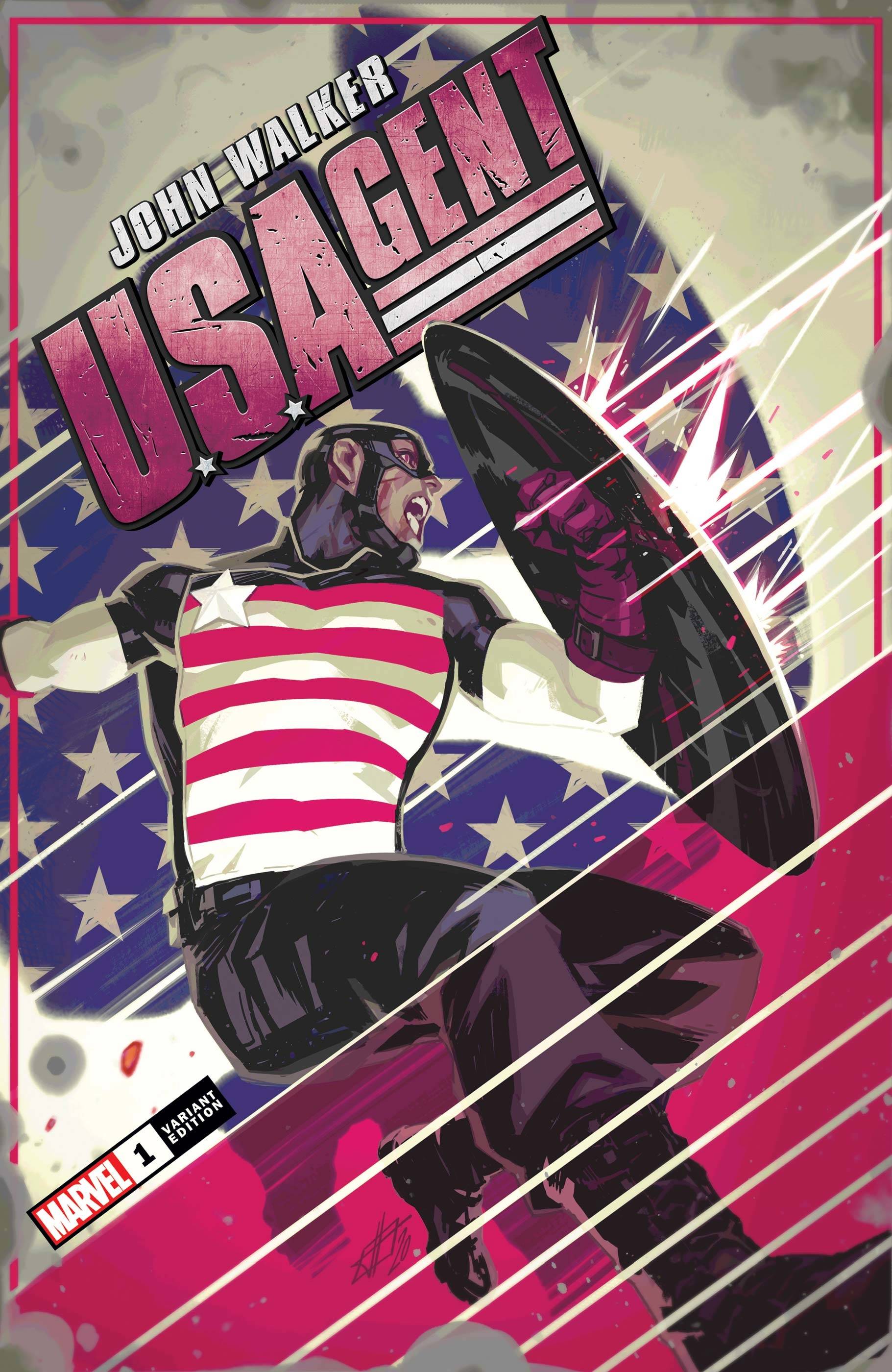
Who am I to say Farmer Bob down the road must live the way I do, believe what I believe, and embrace my values? Why am I pointing my gun at him or legislating against him?
Our American Zealot storyline is pretty obvious: there are three main characters representing three distinctly different Americas, with each character fighting to impose their view on the whole. The challenge to a writer is to present these views fairly and, ideally, without bias if that's possible. The idea is to promote discussion and learn how to agree to disagree.
Nrama: What do you want fans to know about U.S. Agent before it kicks off? What is the core message you're hoping to get across?
Priest: The bottom line is, America is all of it or none of it. At the end of the day, America is us. We are stuck with us, all of us.
Hoping and praying for a season of safety and peace, restoration, healing, and unity for our country.
Wash your hands. Give each other a break.
John Walker became U.S. Agent after replacing Steve Rogers as Captain America. Learn his whole story right here.
I've been Newsarama's resident Marvel Comics expert and general comic book historian since 2011. I've also been the on-site reporter at most major comic conventions such as Comic-Con International: San Diego, New York Comic Con, and C2E2. Outside of comic journalism, I am the artist of many weird pictures, and the guitarist of many heavy riffs. (They/Them)
